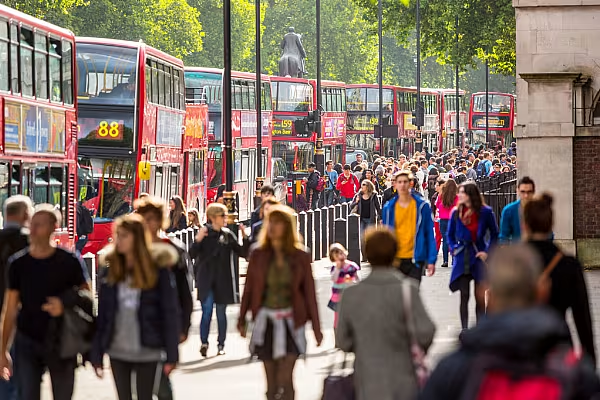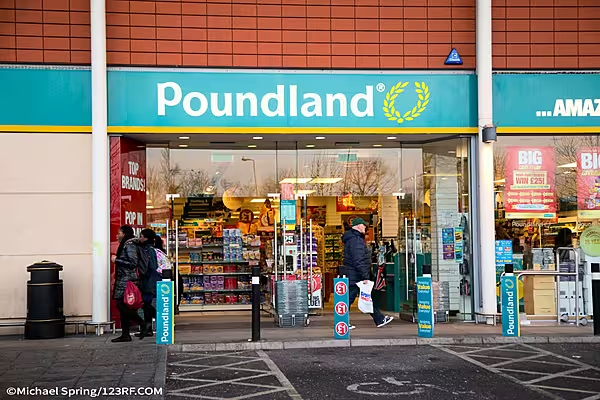Much like British summer, the pickup in UK retail sales is probably going to prove fleeting.
The volume of goods sold in stores and online rose 2.3 percent in April, the Office for National Statistics said Thursday, more than reversing the 1.4 decline seen in March. Nice weather prompted Britons to splurge on their homes and gardens, but accelerating inflation and falling real wages mean the stronger-than-predicted rebound could be a blip.
“Today’s data doesn’t change the underlying story, where the squeeze in household incomes is starting to weigh on consumer activity,” said James Smith, an economist at ING Bank NV.
Official figures this week showed that pay growth slowed to 2.1 percent in the first quarter, but pay fell 0.2 percent after taking inflation into account, the first decline in real earnings in 2 1/2 years. And with inflation accelerating to 2.7 percent in April and forecast to climb further as the weak pound pushes up prices, the squeeze on household budgets is set to intensify.
That bodes ill for consumer spending, which has driven the economy since the vote to leave the European Union almost a year ago, and means Britain is increasingly reliant for growth on exports -- a part of the economy that has proved notoriously unreliable. Bank of England Governor Mark Carney said that households face a “challenging time” this year.
The surge last month puts retail sales on course to increase over the second quarter and reverse the 1.4 percent plunge -- the biggest in seven years -- seen in the previous three months. But the underlying picture remains weak. Compared with a year earlier, sales between February and April were up just 3.1 percent, about half the pace seen as recently as October.
Much of the strength in consumer spending over the last few months has come about as households borrow more and save less, “which is unlikely to prove sustainable,” ING’s Smith said.
Britons are now saving little more than 3 percent of their income, the least on record. Annual consumer-credit growth, meanwhile, is still above 10 percent. Britain’s major banks are making it tougher for consumers to get unsecured loans, which may slow the pace of lending.
“Inflation is eating into the ability to consume,” Gianluca Salford, a London-based European fixed-income strategist at JPMorgan Chase & Co., said in a Bloomberg Television interview. “You can stretch it for a while by counting on your savings, but nevertheless if we look at the long-term horizon we expect a deceleration in GDP growth.”
Growth slowed sharply to 0.3 percent between January and March, and it’s expected by economists surveyed by Bloomberg to maintain that rate in the following three quarters.
News by Bloomberg, edited by ESM. Click subscribe to sign up to ESM: The European Supermarket Magazine.













